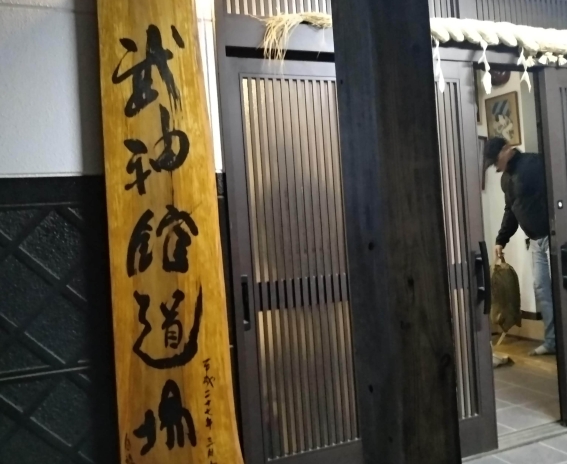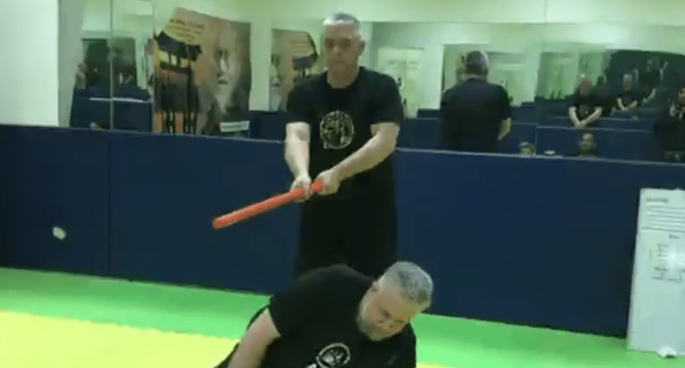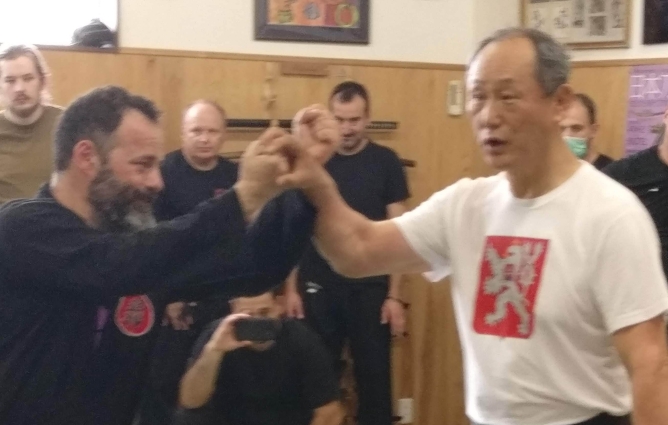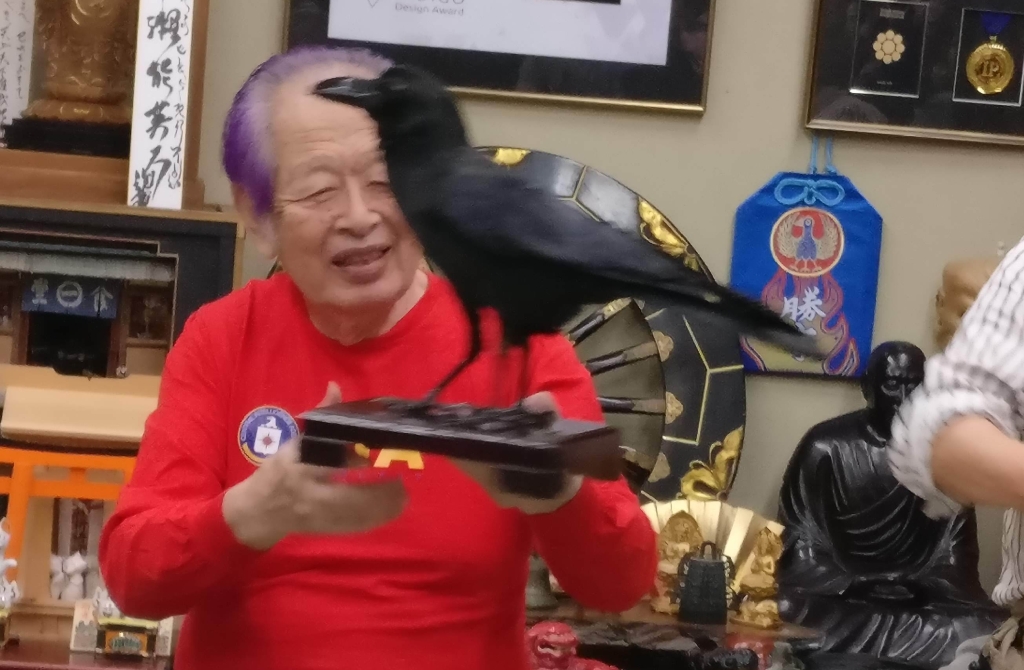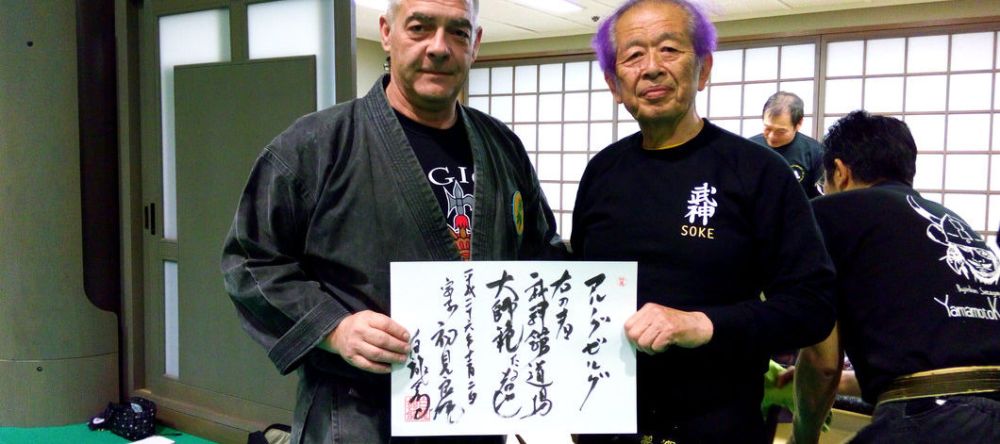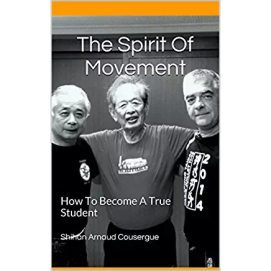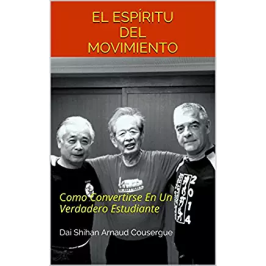I Love The Noguchi Ryū!
From Shiro Kuma by kumablog

Only 24 people joined Noguchi sensei’s class tonight, so we had a lot of space to train.
I love the “Noguchi Ryū” because I find his interpretation of the Waza disturbing and brilliant. It always seems that we are studying another fighting system. (1)
Tonight we covered a “twisted version” of the second level of Koto Ryū and of the Kukishin Bō. Noguchi sensei has this superior ability to transform the known into the unknown. And I am not the only one to feel that way. Yesterday, next to me, was training Elias from Norway. He is also a Bujinkan old-timer, Dai Shihan, and he often comes to train in Japan. After one “revisited” technique, we looked at each other saying, “did he change the technique again?”
We have been training the Koto Ryū with him since the 90s’. That is almost 30 years, and we are lost. We know each technique, and still, each time we feel like beginners. It is amazing!
Like always, the pace was fast, dynamic, with many henka and full of laughter. But how does Noguchi sensei do it?
Hereafter is three points that might shed some light on what is happening.
- First: Noguchi sensei was teaching the second level from the bottom up. I mean that he began with the last technique and went back to the first. To train these Waza in a different order is perturbs our logical brain, it doesn’t help. But, would an attacker launch a predictable hit?
- Second: He reads the same Densho he has been studying for years but gives it a twist. It is like he is reading the essence of the technique and not the step by step process. Or to put it better, the Ura instead of the Omote. Every aspect of the Waza is there, but it doesn’t feel the same. It is like a smell of a croissant instead of the croissant itself.
- Third: He has been training longer than us, and his sensibility is beyond us. Hatsumi sensei explained that Nagato sensei and Noguchi are now evolving at the Ku level. That would explain the change in the forms.
When we think about the concept of Shuhari, Noguchi sensei is definitely at the “ri.” He destructures the techniques so much that they look different. This is pure genius and excellence. I hope that what day I will be able to reach that understanding. (2)
Sensei said we “shouldn’t do precise things because we become predictable. On the battlefield, being readable kills you as the opponent would counter you with ease.
Being unpredictable is the secret of survival. Last week SEnsei repeated again to have no preconceived thoughts. We have to be zero with no emission and no intent. And added that “often, people who studied at the university are those thinking they understand. But in reality, they don’t. Don’t think! Kankaku is important.” (3)
The Bujinkan Budō is fantastic, and I wish that more practitioners can discover how great it is. And the “Noguchi Ryū” like the “Nagato Ryū” are two advanced versions of this greatness. Come to Japan and get enlightened by these two lighthouses. Because at a certain level, it is not anymore a question of Waza, it is a question of feeling.
Follow the example of Shuhari, destroy the form, so only the essence remains: Kankaku.
____________________________________
1 Noguchi Ryū: Twenty years ago, I went to sensei’s house after class. I didn’t know what to think because each sensei was different. Actually, I was mad. I asked him, “Sensei, is it normal that I feel that I am learning the Bujinkan with you. The Noguchi Ryū with Noguchi sensei. The Nagato Ryū with Nagato sensei. The Oguri Ryū with Oguri sensei. The Senō Ryū with Senō sensei?”
Then with a smile on his face, he looked my eyes and said, “Yes.” Then he laughed.
2 守破離, Shuhari: Shuhari; three stages of learning mastery: the fundamentals, breaking with tradition, parting with traditional wisdom
3 感覚, Kankaku: sense; sensation; feeling; intuition.
PARIS TAIKAI JULY 12th to 14th SVEN PETER ARNAUD JOIN TODAY
…
